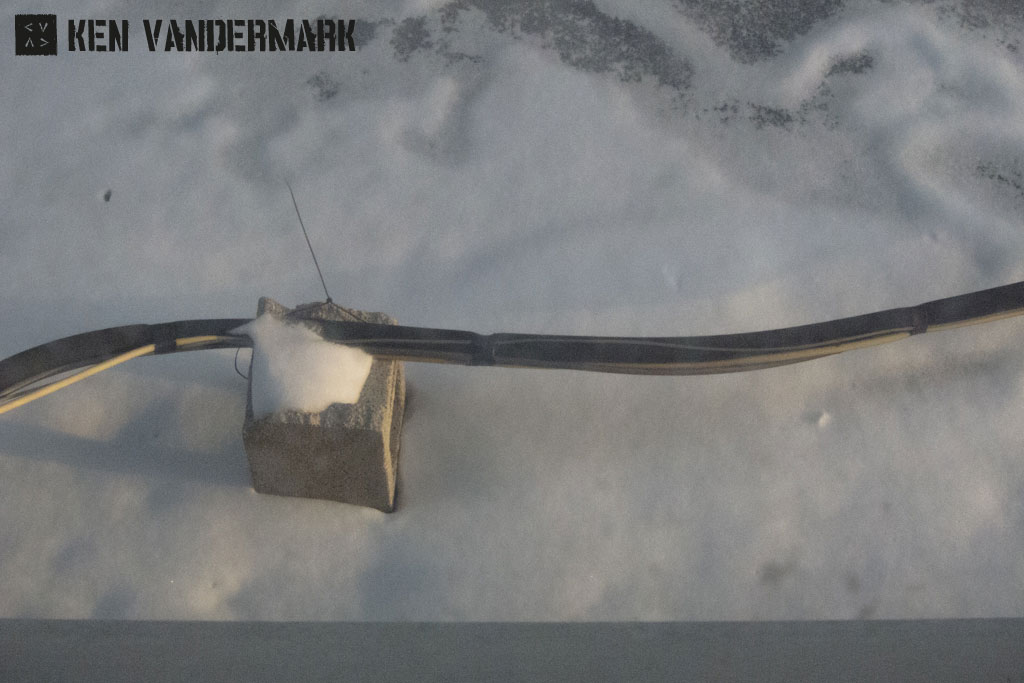

| Released by Fred Anderson Trio Record Label Okka Disk Year released 1999 Release format CD |
| An Hour after this recording was made at the Velvet Lounge, Fred Anderson was bent over his bar restocking the beer – the same thing he does every other of the year. Business as usual for one of the great, critically acclaimed musicians of our time: late 60’s, lugging bottles and running a nightclub for a living. Welcome to the reality of being an artist in the United States at the end of the 20th century.
Fred exhibits no bitterness over the situation. The economics of a “career” in the improvised music world are something he seems to have accepted a long time ago. His commitment and passion towards running the Velvet Lounge as a venue for established and up-and-coming musicians should be legendary, but it’s nothing new in Fred’s life. He has run other spaces (like the Birdhouse) for decades. He’s led many bands (like the group that recorded on of the seminal AACM documents for Delmark, Song For). Some of these bands gave musicians like George Lewis and Hamid Drake a chance to cut their teeth and develop, helping them become musical figures with the stature they have today. And if all this wasn’t enough, he was there to help found the AACM in the mid-1960’s. Those accomplishments are part of the past. The Velvet Lounge and this recording with Hamid Drake & Peter Kowald (as well as the other documents he has made for Okka Disk) are part of the here-and-now of Fred Anderson’s life, a life consumed with music. Besides playing and running a bar, he will find the time and energy to get out and catch local and visiting musicians playing in the city: fuel for his ideas. Fred heard Evan Parker play solo; two months later the echo was transformed into upper register feathers of sound that were never there before. The man is a player who is a testament to the lie of talent and the truth of hard work. Come by before the Velvet opens and you’ll find him there every day, practicing. He’s part blues musician, delving in between notes like Ornette Coleman, but as only Fred can. These days he’s no longer interested in notating his tunes; he plays the material written in his head. When I struggled to keep up with him on his compositions while rehearsing for the Fred Anderson / DKV Trio recording (Okka Disk OD 12014) , he was very specific about each and every nuance in pitch and rhythm. Every phrase is placed where and when it should be placed; there are no accidental notes unless Fred is reaching towards the sounds he’s hearing but can’t get to, yet. When Bruno Johnson went to deliver to Fred the Vintage Duets CD (Okka Disk OD12001) – the primary instigation that started Okka Disk, – he asked me if I wanted to tag along. We pulled up to the Velvet Lounge and pounded on the front door, trying to be heard above the long tones belting from the inside. After a spell we were seated at the bar; Fred asked us if we wanted a beer: Schlitz in a can. We drank as he looked over the CD, his first recording ot be released in a decade. The now-gone jukebox was playing some great jazz. Coleman Hawkins came on. Nothing moved in the bar while Hawkins played, just the three of us sitting still while the room was filled with the immense power of his tenor sax. It was like that for a few minutes, then the solo was over and I looked over at Fred. He just said “Hawk played so much”. and I knew what those words meant. Just as I know that every time Fred plays, live, on this and every other recording, he’s like Hawkins. Because like Hawkins, Fred Anderson tells the truth with his music. Here he plays with two equals. If anyone knows Fred’s music it’s Hamid Drake, an astonishing drummer who’s worked with him for about 25 years. The German bassist, Peter Kowald, is rightfully a legend – listen to him here playing things that he’s never done before. The music is spontaneous and carved out of Fred’s language, a language that’s flexible and open enough to deal with this first encounter and with ideas developed on both sides of the Atlantic Ocean. Those of us that caught the concert that night saw and heard something that will stay with us forever. Those of you who couldn’t be there are lucky enough to have this document in your hands. Duke Ellington said that there only two kinds of music, good and bad. Listen to Live at the Velvet Lounge closely. This is as good as it gets. – Ken Vandermark, February 1999 |
© 2024 Ken Vandermark – musician & composer | Disclaimer